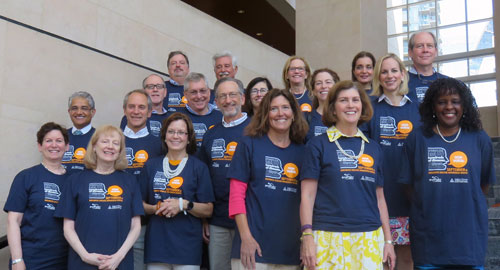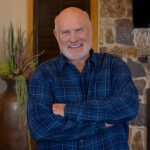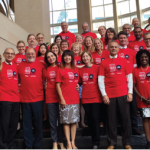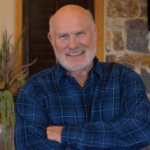“There are many patient advocacy groups that highlight specific diseases, but for a long time, we have felt that rheumatic diseases as a whole needed to be highlighted, because of the devastating effect they have on patients and [because of] some of the issues [surrounding] patient access to care and treatment,” says Kelly Weselman, MD, chair of the ACR Committee on Communications and Marketing. “Rather than highlighting [the conditions] individually—because they have the common issues that many are difficult to treat, many are difficult to diagnose, they all need the expertise of a rheumatologist to treat them—it was thought that we would increase awareness if we [focused on] this as a group of diseases.”
Dr. Weselman, a practicing rheumatologist at the Wellstar Medical Group in Smyrna, Ga., says that a month-long event is only the first step in putting and keeping rheumatic diseases in the public eye.
“The first step is letting people know, ‘Look, we have all these different rheumatic diseases that share some common threads, but they’re different—and some are common, and some are rare— but they all affect patients, they all cause some degree of long-term disability if not treated appropriately, and many of them require some expensive medicines to treat,’” Dr. Weselman says. “Then, the next step from here will be to make this an annual awareness month, and we can continue to take this further.”
The ACR has been working with government officials, physicians and patient advocacy groups to help schedule and promote the month. Now, it’s time to raise more research funding and awareness, Dr. Weselman says.
Imagine, she adds, if the month-long event raises enough awareness for people to realize that the symptoms they’ve been plagued with but aren’t sure why are those of a rheumatic disease. Shortening the time from diagnosis to access to treatment is the awareness program’s long-term goal.
“I don’t think this one month is immediately going to be the solution to the underlying issue,” Dr. Weselman says. “It’s too complex—there are too many diseases and too many issues to discuss—to be finished within one month. But I do think that starting this [event] and continuing [it] annually will help us make great inroads.”
ACR/ARHP members can get involved in a number of different ways this September:
- Participate on social media. We encourage you to use the official RDAM hashtag, #RDAM, in your social media posts about RDAM 2016. The RDAM toolkit contains several social media posts that you are welcome to use on your social channels. Also, consider changing your social media profile photo to the RDAM profile badge to show solidarity during RDAM 2016 or post a RheumSelfie using #RheumSelfie. Simple Tasks is hosting weekly #RheumChat Twitter chats throughout September on topics related to living with a rheumatic disease. Please join us for one or more of the chats this September! We also ask that you share the Jennie Garth PSA on your social media platforms.
- Utilize all of the RDAM toolkit materials to promote and engage with others during RDAM and share the toolkit with your patients so they can participate!
Consider authoring an op-ed or letter-to-editor (or broadcast media interview) about rheumatology diseases as an expert in your community. The ACR is happy to assist you with writing, placement and media outreach. Let Bonny Senkbeil, ACR director of public relations, know about your willingness to participate.



